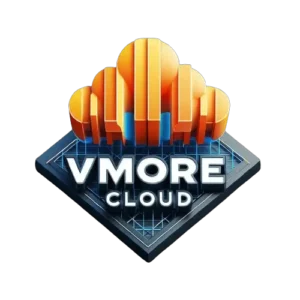Introduction
Welcome to the world of modern computing! In this article, you will be introduced to the fascinating concepts of containers and virtual machines. Whether you’re a tech enthusiast or a professional in the field, understanding these terms is essential. Containers are lightweight, standalone packages that encapsulate applications and their dependencies. They allow for efficient resource utilization, improved scalability, and simplified deployment across different environments. On the other hand, virtual machines are complete emulations of physical computers, providing a secure and isolated environment for running applications. By the end of this article, you will have a clear understanding of the differences and benefits of containers and virtual machines. So, let’s dive in and explore the wonderful world of modern computing!
Table of Contents
Understanding the Concept of Containers
Containers are a lightweight, portable, and self-contained software package that includes all the necessary components to run an application, such as the code, runtime, system tools, and libraries. Unlike traditional virtual machines, containers share the host operating system’s kernel, which means they can be launched and scaled quickly, without the need for a full operating system for each instance.
Understanding the Concept of Virtual Machines
Virtual machines, on the other hand, are complete, independent computing environments that emulate physical hardware. Each VM has its own operating system, applications, and resources, isolated from the host machine and other VMs. This approach provides a higher level of isolation and security, but it also comes with a higher overhead in terms of system resources and deployment time.
Key Differences Between Containers and Virtual Machines
To better understand the differences between containers and virtual machines, let’s compare them across several key aspects:
- Isolation: Containers share the host operating system’s kernel, while virtual machines have their own independent operating systems, providing a higher level of isolation.
- Resource Utilization: Containers are generally more lightweight and efficient in terms of resource utilization, as they don’t require the overhead of a full operating system.
- Deployment and Scaling: Containers can be launched and scaled much faster than virtual machines, making them more suitable for agile development and deployment workflows.
- Portability: Containers are highly portable and can run consistently across different environments, while virtual machines are more tied to the underlying hardware and software configurations.
Benefits of Using Containers
- Improved Efficiency: Containers are more lightweight and efficient in their use of system resources, allowing you to run more applications on the same hardware.
- Faster Deployment: The quick startup and scaling capabilities of containers enable faster application deployment and updates, which is essential in today’s fast-paced software development landscape.
- Consistency and Portability: Containers provide a consistent and reliable runtime environment, ensuring that applications will run the same way across different systems and platforms.
- Simplified Management: Containers abstract away the underlying infrastructure, making it easier to manage and maintain applications, especially in complex, distributed environments.
Benefits of Using Virtual Machines
- Stronger Isolation: Virtual machines offer a higher level of isolation, as each VM has its own operating system and resources, providing better security and fault tolerance.
- Legacy Application Support: Virtual machines can run legacy applications that may not be compatible with modern container-based architectures, allowing organizations to maintain critical business systems.
- Hardware Utilization: Virtual machines can provide more efficient utilization of physical hardware resources, especially in scenarios where applications require dedicated or specialized hardware.
- Comprehensive Control: Virtual machines offer a higher degree of control over the underlying operating system and hardware, which can be important for certain use cases, such as research or development environments.
Considerations When Choosing Between Containers and Virtual Machines
When deciding between containers and virtual machines, it’s essential to consider the specific requirements of your application, the infrastructure you’re working with, and the trade-offs between the two approaches. Factors such as security, scalability, deployment complexity, and resource utilization should all be taken into account.
Security Comparison Between Containers and Virtual Machines
Both containers and virtual machines have their own security considerations. Containers generally have a smaller attack surface, as they share the host operating system’s kernel, which can make them more secure in certain scenarios. However, virtual machines offer a higher level of isolation, which can be crucial for applications that handle sensitive data or require strict security measures.
Scalability and Flexibility Comparison
Containers excel in terms of scalability and flexibility, as they can be quickly launched, scaled, and moved between different environments. Virtual machines, on the other hand, can be more challenging to scale and may require more resources and time to provision new instances.
Ease of Deployment and Management Comparison
The containerization approach simplifies the deployment and management of applications, as containers can be easily packaged, distributed, and orchestrated using tools like Docker and Kubernetes. Virtual machines, while offering more control, can be more complex to manage, especially in large-scale, distributed environments.
Conclusion
In conclusion, the choice between containers and virtual machines ultimately depends on the specific needs of your organization and the requirements of your applications. Containers offer improved efficiency, faster deployment, and greater portability, making them well-suited for modern, cloud-native applications. Virtual machines, on the other hand, provide stronger isolation and support for legacy systems, making them a suitable choice for certain use cases.


